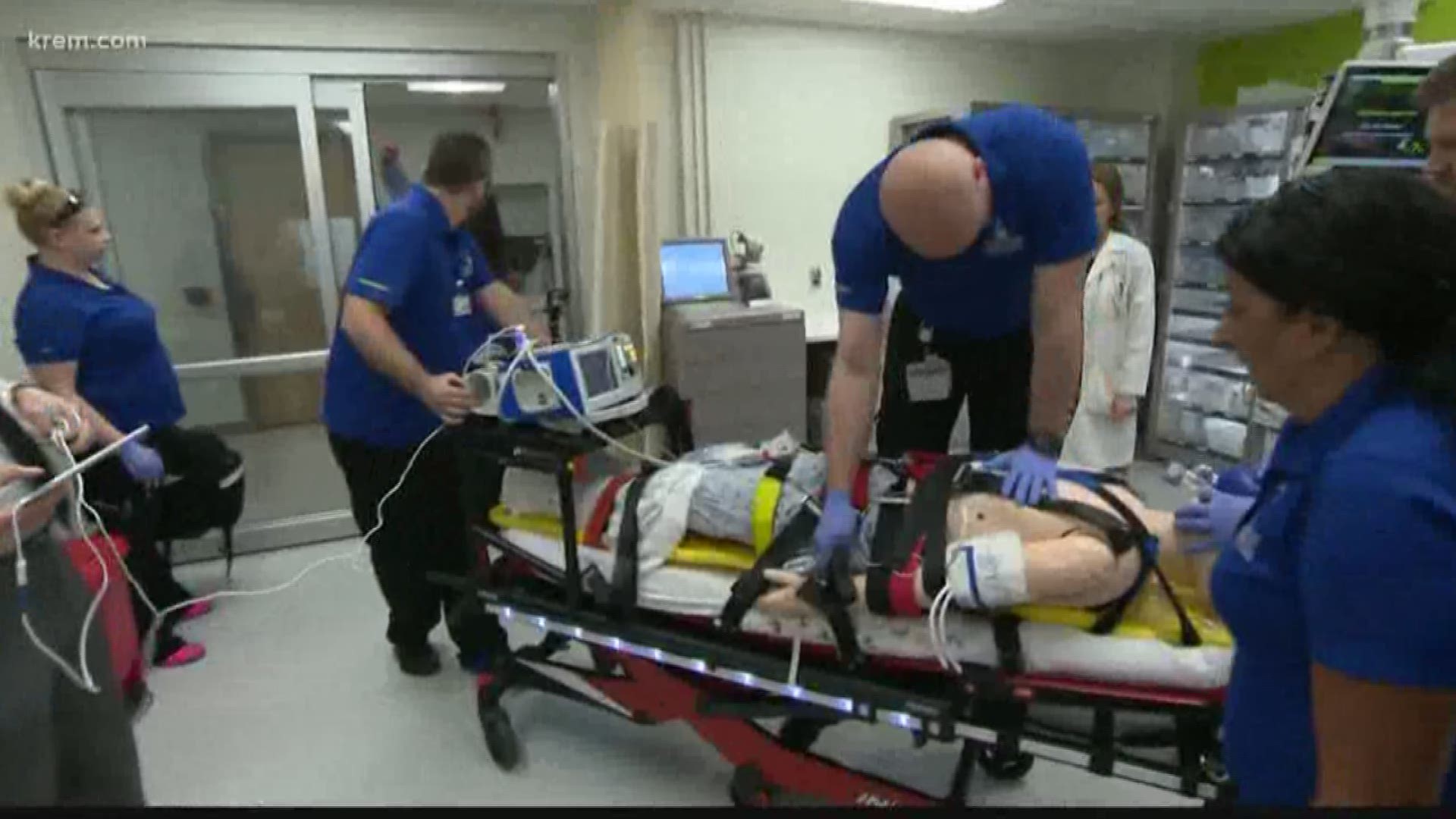SPOKANE, Wash. – Katherine Tuttle is probably the last person anyone would expect to drop dead of cardiac arrest.
Tuttle is a physician and director of research at Providence Sacred Heart Medical Center in Spokane, who has always been attentive to her health.
“I’ve had a lifelong passion for running. Started running in college…For me, it’s really a transformative experience,” Tuttle said. “It’s mind, body, spirit transformation. It’s meditation, it’s clarity, it’s contemplation as well as physical exercise. The week before I dropped dead, I had run 65 miles.”
But Tuttle’s story is not about her athleticism or work with patients. It is about her time as one.
At 2 a.m. on the night of Easter Sunday in 2012, Tuttle had a cardiac arrest. She suffered a seizure that woke her husband, who discovered his wife did not have a pulse. He immediately began CPR.
Tuttle and her husband live in rural Spokane County, a mile away from any road that an ambulance could find. As her husband drove toward a main thoroughfare, Tuttle became pulseless again. He began one-armed CPR while calling 911 on his Bluetooth device.
Her husband, Dr. Andrew Boulet, is himself a cardiologist at Sacred Heart, performed CPR by himself for 20 minutes until EMTs arrived. After she flatlined on the EKG for the first time, her husband told the EMTs to “shock her again."
“And they said, ‘well that’s not protocol.’ So he said, ‘Hand me the paddles, I’ll do it.’ So he shocked me the second time and I came out, and went into actually a regular heart rhythm but didn’t wake up because my brain had been without oxygen or blood for a long time,” Tuttle said.
Father Bernard Coughlin, S.J., came to give Tuttle her last rites at the hospital before she miraculously woke up, made the sign of the cross and “came right out of it,” she said.
She said she is alive today because of the kind of medical research she conducts and is hopeful that technology will continue to improve outcomes for people like her.
In the meantime, she said everyone should consider CPR certification.
“I received wonderful care from my doctors to the nurses and therapists and all kinds of wonderful staff at the hospital. But really, what saved my life is CPR,” she said. “I wouldn’t have had a chance to get better without the CPR.”
If you are in taking CPR training classes, you can find more information on the American Heart Association's website. Tuttle regularly teaches classes in the Spokane area.
She said her story is a reminder not to ignore symptoms. As a doctor, she knew the warning signs and easily brushed them off because she felt fine overall.

